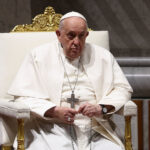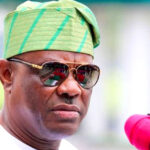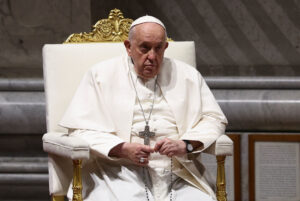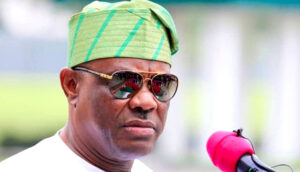By Debo Aare
What is it about Peter Obi? Never in Nigeria’s recent history has a presidential candidacy stirred up so much emotion and excitement as that of Mr Peter Obi, presidential candidate of the Labour Party. It is hard to recall any candidate of a party other than the two main parties – the APC and PDP since 2015, and before them the APC legacy parties of ANPP, CPC and perhaps the ACN, that has generated this much interest and momentum. Yet, none of those candidates as much as threatened the hegemony of a ruling party and the main opposition party – in this case the PDP – as Obi and his Labour Party. Obi has unleashed an uncommon migraine on the major parties!
It is a measure of how much he has defined the political conversation that candidates of the major parties and their surrogates are making more statements about Obi, his party and chances than their manifestos. For once the conversation is about a three-horse race for the presidency, however much the main parties sneer at Obi’s chances. But, what is it about Obi?
What is it about this man who last held elective political office as Governor eight years ago, whose political capital should be in decline, not on the ascendant? Of course a lot has been said of Obi and what drives his surge in Nigeria’s polisphere. Here I try to identify the factors behind Obi’s run so far and why the two main parties are worried. I also project into the race and on how well Obi and his party would fare. Of course, in discussing Obi’s candidacy it is well in place to bring in his running mate, Dr Datti Baba-Ahmed, who in the estimation of their supporters present an effervescent ticket for the presidency in the 2023 poll.
The APC calculations
The party has always laid claim to leadership being the incumbent in power. Its major promoters from the south laid claim to the presidency after Buhari. The southwest, particularly, made it a point of its campaign such that the presumptive heir to the party’s ticket, Asiwaju Bola Ahmed Tinubu, never bothered to campaign in the southeast and southwest during the APC primary campaign. Rather, he made his first entitlement pitch at the palace of the Alake in Abeokuta where he said that it was the turn of the Yoruba (not the south) and from the Yoruba, his turn, from where we got Emilokan.
This was at a time when the southeast was literally pleading, logically, that they deserved the presidency. After all, when President Olusegun Obasanjo, a Yoruba from the southwest, ran for the presidency, he got massive votes from the southeast in 1999 and 2003. He was president for eight years and after that Professor Yemi Osinbajo, also a Yoruba is Vice President under President Muhammadu Buhari. Unlike other southwest aspirants such as Osinbajo and Ekiti State Governor Kayode Fayemi who vigorously campaigned for southeast and south-south votes during the primary, Tinubu did not. Even now, he has visited the north several times and his southwest homebase to push his candidacy but has not bothered to make consultations in the southeast. Is it any surprise that his not campaigning in those zones even now has formed a subtext of the political conversations now, with campaigns underway?
Of course the southeast was not in a place to negotiate for an APC presidential ticket in the first place, having not voted for the APC in the two previous general elections. But, as bad as it was, the APC had two states out of five in the region. All the pleas to fairness and equity, as ex Senate President Ken Nnamani and former minister Dr Ogbonaya Onu made as APC presidential aspirants were going to fall on deaf ears. The Yoruba must have their promised crown. And they did. Because they had the upper hand in the party.
PDP calculations
By the time the APC was going into its primary convention in June, the PDP had pulled off its primary with Alhaji Abubakar Atiku emerging. His emergence was a repudiation of PDP’s zoning formula, which guaranteed the ticket to the southeast, being a key supporter of the PDP. Even the case about power shift and equity being made by Governor Nyesom Wike who was runner-up to Atiku, is seen as dubious given that he did not agree to micro zoning the ticket to the southeast being the only southern geopolitical zone that has not produced a candidate in the party. While the southwest produced Obasanjo, the southsouth produced President Goodluck Jonathan.
While the southwest had a formidable candidate in Tinubu, the North a strong candidate in Atiku, the southeast seemed without a major Candidate at a time the people were searching for where to pitch their tents. In choosing Atiku, the PDP must have reasoned that they could rely on the traditional southeast and southsouth votes in 2023. Same for APC which was hoping that the desire for a southern candidate will win it support in both geopolitical zones, rather than another northern candidate.
Enter Candidate Obi
Peter Obi had bought the forms to run for the PDP ticket and had actually toured 35 state’s when he suddenly quit. When Peter Obi left the PDP before the primaries not many people gave him a chance but I said it was the best move at the time. I commented on a platform that, ‘Peter Obi has suddenly made himself relevant and may well be a game changer in the election, even if he does not win’. And I predicted that the Labour Party was his best option, not for anything else but that if he could get the party’s ticket, his message of production, jobs and cutting extravagance in government would resonate well. Forget those who argue that the Labour Party’s mission is contrarian to capitalism, they are not when you consider the irreducible minimum of jobs and a better society that works, which is the drive of the typical Labour today! These are the messages of Obi.
Once Obi came into the equation and got the party’s ticket, the game changed. The southeast that was not on the ticket of a major party now had a credible candidate, tested and with national name recognition. It threatens both the ambition of the APC to harvest the whole southern votes on a sentiment of rotation, and that of the PDP to harvest southeast votes on the promise of the VP ticket.
The forces behind Obi’s push
They cut across the country but for the first time, a third party, Labour, has an advantage because it will have a regional base that assures it of votes if it harnesses it well. The sentiment in much of the southeast and southsouth is with Obi, driven by four forces: the first is his persona of humility, sobriety and temperance, which he has pitched well over many years of speaking on national issues. The second is the fact that he is Igbo and there is the sentiment for the Igbo presidency across the southsouth and southeast and among other liberal political leaders. For instance, Afenifere, the Yoruba sociopolitical group, is split down the middle because some of its leaders such as Pa Ayo Adebanjo support Obi on the basis of political equity.
The third factor is Obi’s economic message, which preaches frugality in public sector spending and emphasis on production, which has won him the qualified support of business leaders and economic policy activists such as Professor Pat Utomi. The fourth factor is the youth convergence on Obi. At 61, he is not a youth but is younger than both candidates of APC and PDP. He is also reputed for saying the right things about supporting the youths, especially in the aftermath of the endsars protest of 2021 that was brutally quashed by the current APC administration. On the police attitude to hunting down so-called yahoo boys, he advocates providing opportunities for youths to redirect their energy and decriminalising the youths. The youth activism in next year’s election may be the highest so far in Nigeria.
Those who feel that political leadership in Nigeria now equates legalized banditry, with political leaders living large on and stealing state borrowed funds are motivated by Obi’s simplicity. There is the added factor of his religion. After eight years of a Muslim president, Christians long for a president of Christian extraction. While Atiku guarantees a voice for Christians at the decision-making table in Aso rock, if the PDP wins, Tinubu assures them that he will address their interests if he wins, even with the most extreme ticket, muslim-muslim, at a time when protests of exclusion (religious and ethnic) are heavy after seven years of Buhari’s regime. For Tinubu there are reasons to believe that he may truly deliver on his promise, but perception and the optics don’t look good.
It is no wonder therefore that Obi receives warm support and ovation whenever he visits religious leaders and is announced amongst their congregation. To counter, the surrogates are fighting hard to tar Obi with the brush of IPOB and Biafra, movements that have never featured in his political or even everyday associations. It is a desperate move that shows that they will throw everything at the Labour Party candidate. The problem is that they may well solidify his eastern and southsouth base and push voters to him. Could that affect his votes elsewhere, especially in the north? Possibly. However, except that APC wants to fool itself, where ethnicity and religion are the game, much of the north is locked in for Atiku and the PDP. In the end we may have a three-way race: Obi, Atiku and Tinubu in no order. And, it is anybody’s game. That is the problem with Obi and why the major parties are worried.










More Stories
Defections: 2027 election a choice between Nigerians and Tinubu, not PDP vs APC – Atiku
PDP’s fate in God’s hand, says National Chairman Damagum
Re-electing Tinubu in 2027 will only preserve four more years of failure, says Baba-Ahmed